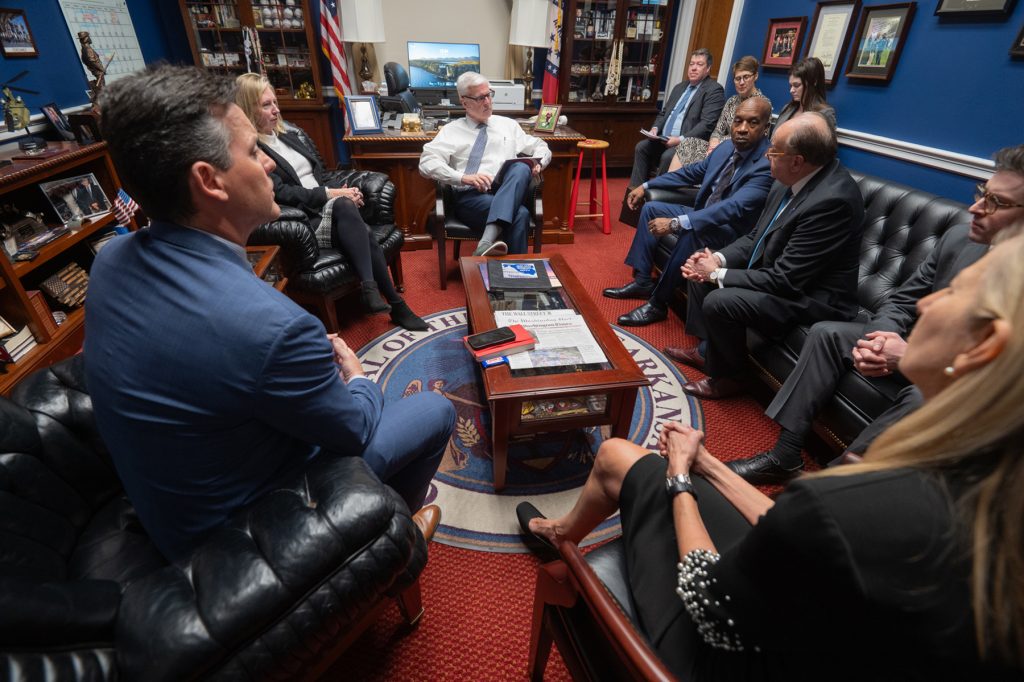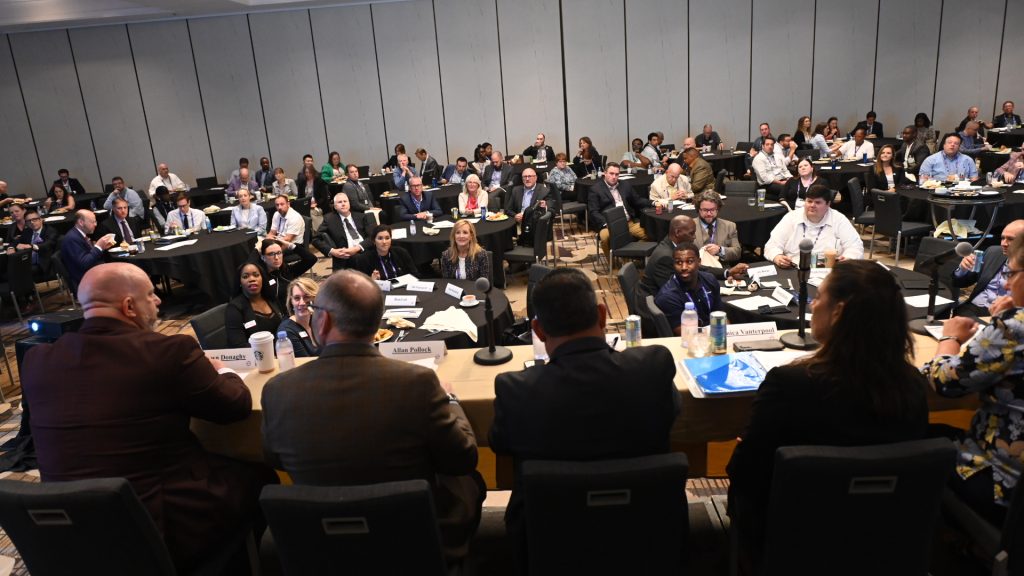The Power of Many, Moving as One
By Leanne Redden | 9/17/2025
APTA Chair
Executive Director
Regional Transportation Authority
Chicago, IL

Building unity among peers and colleagues in pursuit of a common good is what has guided my career. It’s the principle I’ve always tried to practice—and it will be my North Star as APTA chair.
For more than a decade, our industry has been taking on an increasing number of diverse and complex responsibilities. Some were thrust upon us by external forces, like a global pandemic; others were natural extensions of advancing mobility to underserved neighborhoods and adjusting to new technologies.
Whatever the catalyst, public transportation’s voice has been valued, and we have had a great deal to contribute.
Today, public transit agencies are expected to have expertise in issues as varied as environmental science and modern policing, affordable housing and public health, cybersecurity and economic development… not to mention transit’s alternative fuels, battery technology, and engine software maintenance.
It’s no wonder APTA has more than 135 committees and working groups.
Each dollar or coin in our pocket or wallet bears a familiar phrase we must take to heart—E Pluribus Unum—“Out of Many, One.” APTA has plenty of “pluribus” with 1,700 member agencies and businesses striving to deliver all that is expected of us. But we will be required to have “unum”—the unity—to be successful when it matters most.
And when it matters most is September 30, 2026. That’s when the current surface transportation law, established by the Infrastructure Investment and Jobs Act, will expire. Nothing is more critical to the continued funding, policy direction, efficient operation, and growth of our industry than securing passage of a favorable, new, multi-year authorization.
After more than a year of collaborative work, our members produced a set of industry recommendations, which have been approved by the APTA Legislative Committee and will be submitted to the board for approval this fall.

These recommendations will help:
- Leverage financing tools;
- Strengthen public transit and passenger rail programs;
- Advance safety, security, and accessibility; and
- Accelerate project delivery.
APTA’s proposals are designed to bolster America’s competitiveness, create family-wage jobs, and support innovation in public transportation. Additionally, we are urging the Administration and Congress to provide $138 billion for public transit and $130 billion for passenger rail over five years.
When we convene for the next TRANSform Conference and EXPO in Chicago, my adopted hometown, in October 2026, we hope to be operating under a new Surface Transportation law. That final product will be shaped by the allies we attract, the advice we solicit, and the actions we take to broaden a unified circle of supporters.
Having led three major funding initiatives at the RTA—for both increased state and federal resources to support a large, socially and geographically diverse six-county region—I relish building consensus.
There are three strategies I plan to pursue as chair:
First, we will build on the great work led by Immediate Past Chair MJ Maynard-Carey to tell our “jobs-business-economy” story.
In Washington, DC, and in state legislatures across the country, we want every elected official and decision-maker to understand that investing in public transportation:
- Creates jobs and gets people to those jobs;
- Spurs innovation;
- Supports large and small businesses; and
- Drives the U.S. economy.
Second, we will help non-traditional audiences to see their priorities in transit’s stories.

Think about the broad range of issues that public transit agencies are called upon to support. Each of those has advocates. So, in addition to business groups, we will invite dialogues with educational institutions, affordable housing proponents, crime prevention professionals, and many others.
These constituencies depend on a healthy and growing public transportation industry. We can enlist their voices to help us demonstrate transit’s essential value.
It’s not about the stories WE want to tell; rather, it’s about the stories that will resonate with potential new allies.
These strategies can help increase support for public transportation funding. We will tell the stories that match each group’s mission, showing how transit helps them achieve their goals, whether it’s access to a larger pool of workers and customers, revenue-generating events, schools, housing, or safer neighborhoods.
Third, there is nothing to be gained by talking to ourselves and everything to be gained by engaging our critics. In every consensus-building endeavor of my career, I’ve learned more, grown more, and achieved more by reaching out to potential opponents.
Not every legislator, policymaker, or organization appreciates the importance of investing in public transportation. But that shouldn’t stop us from initiating a dialogue.
APTA represents every modality and sector, large and small systems and businesses in urban, suburban, and rural communities. We have a unique opportunity to find the right platforms and messages to win over skeptics.
Enacting a new and beneficial Surface Transportation Authorization will be challenging. All of us will be called upon to actively participate in an intense and aggressive year-long campaign. To succeed, we must stick together, support each other’s interests, and speak with one voice.
I am grateful for this opportunity to advance the power of smart transportation policies, bringing mobility and prosperity directly where it’s needed most. And I truly look forward to working with all of you, to hearing your ideas, and to supporting you in your work during the exciting year ahead.